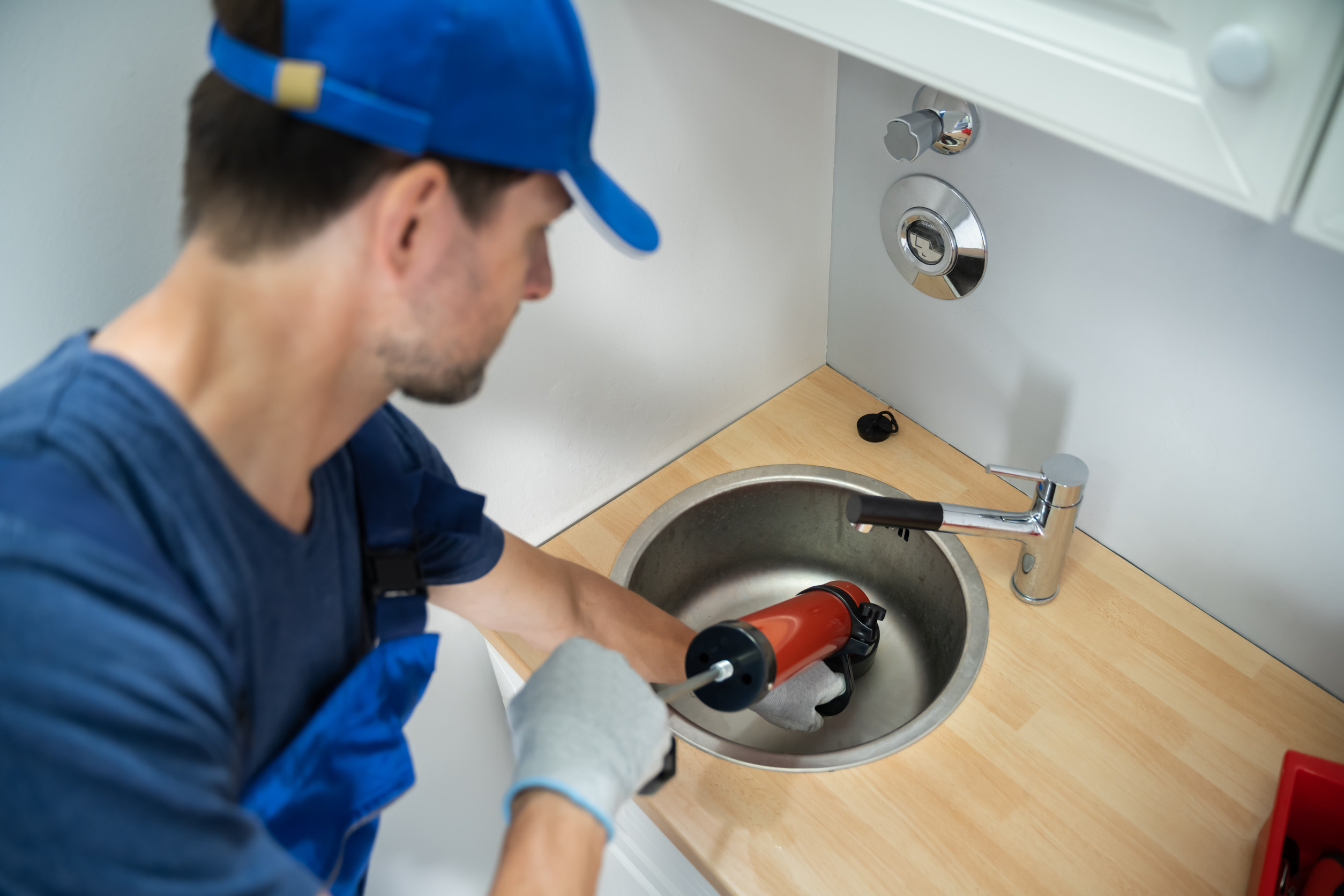The Best Drain Cleaning Methods for Your Home

Drain clogs can derail a busy household—whether it’s a kitchen sink flowing sluggishly or a shower refusing to drain. Common culprits include grease, hair buildup, food scraps, coffee grounds, and mineral deposits. While minor clogs might clear with simple flushes, persistent blockages often require advanced solutions like professional plumbing services or in-depth inspection.
1. Boiling Water: A Basic First Line of Defense
Carefully pour hot (but not boiling) water into your drain in stages, allowing time between pours.
Pros: Fast, free, dissolves grease
Cons: Limited effectiveness and potential risk to PVC pipes
2. Baking Soda & Vinegar: Nature’s Drain Cleaner
Mix ½ cup baking soda with ½ cup vinegar, pour into the drain, let it fizz for 15 minutes, then rinse with hot water.
Pros: Natural, deodorizing, gentle
Cons: Works slowly and may need repeated use
3. Dish Soap & Hot Water: Effective Against Grease
Combine dish soap with hot water, pour down the drain, let it sit, then flush with warm water.
Pros: Soft on pipes, targets oily clogs
Cons: Multiple applications may be needed for heavy buildup
4. Plunger: Quick Fix for Many Blockages
Use a rubber plunger with enough water to seal the drain and plunge 10–15 times.
Pros: Effective for surface clogs
Cons: Doesn’t reach deep blockages
5. Drain Snake (Auger): A Step Deeper
A cable snake reaches 10–15 feet into pipes to tackle deeper clogs.
Pros: Penetrates stubborn blockages
Cons: Risk of pipe damage and limited reach
6. Enzymatic Cleaners: Long-Term Prevention
Monthly treatments with enzyme-based products break down organic debris.
Pros: Safe for all plumbing
Cons: Works slower than chemical cleaners
7. Chemical Cleaners: Stronger, but Careful Usage Required
Drain cleaners like Drano dissolve hair and grease fast.
Pros: Quick and effective
Cons: May damage plumbing and harmful to the environment
8. Hydro-Jetting: The Summer Solution for Clogged Drains
High-pressure water (up to 4,000 psi) scours pipes clean of buildup and roots. Before proceeding, Advanced Heat AC & Plumbing ensures pipe integrity with a sewer line video inspection and optional tankless water heater installation services to complement system health.
9. Video Camera Inspection: Diagnose Before You Clean
Locating problem areas lets plumbers choose the right solution—be it sewer line repair, hydro-jetting, or standard cleaning.
10. Preventative Care: Simple Habits That Matter
- Use mesh strainers to catch debris
- Never dispose of grease or coffee grounds in drains
- Flush drains with hot water or enzyme cleaners regularly
- Inspect under-sink pipes for leaks or corrosion
When to Call the Professionals
If you experience any of the following, it’s time for expert help:
- Multiple fixtures clog simultaneously
- Persistent foul odors or gurgling
- Water pooling or backing up
- It’s been more than a year since sewer maintenance
- You need advanced commercial plumbing solutions
Local Knoxville Experts You Can Trust
Advanced Heat AC & Plumbing offers expert plumbing services, including tankless water heater installation, sewer line repair, water line repair, hydro-jetting, video inspections, and drain-line maintenance. We also serve businesses with our commercial plumbing expertise. Trust Knoxville’s top team for reliable solutions that protect your home or business.
FAQs on Home Drain Cleaning
What’s the quickest way to clear a kitchen sink clog?
Begin with hot water, then try baking soda and vinegar. For grease build‑up, follow with dish soap and hot water.
Are chemical drain cleaners safe for regular use?
They work fast but can be harmful to older piping and harsh on the environment. If clogs return, it’s best to seek professional help.
How often should I use enzymatic drain cleaners?
Monthly use helps prevent organic buildup and maintain pipe health.
When should I call a plumber instead of DIY clearing?
If clogs affect multiple areas, produce odors, or persist despite DIY efforts, consult a pro.
How does hydro-jetting compare to drain snaking?
Hydro-jetting uses high-pressure water to thoroughly clean pipe interiors, while snaking only clears the blockage.
Is hydro-jetting safe for all pipe types?
Yes—when preceded by a video inspection to verify pipe integrity.
How can I prevent future drain clogs?
Install strainers, avoid pouring grease, and schedule annual drain maintenance with professionals.
Why do clogs cause foul odors?
Organic deposits harbor bacteria that produce bad smells; enzyme treatments can help remove them.
Do camera inspections damage pipes?
No—it’s a non-invasive diagnosis method that helps avoid unnecessary repairs.
What ongoing maintenance is recommended after a professional clean?
Use monthly enzyme cleaners, keep debris out of drains, and get annual professional inspections for optimal pipe function.
Need reliable help? Contact Advanced Heat AC & Plumbing for expert drain cleaning, sewer line repair, water line repair, or business-grade commercial plumbing services in East Tennessee. Keep your home or business flowing smoothly—reach out today!



